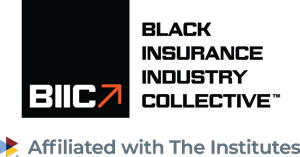Be inspired to make a difference in your community.
Hiscox employee, Saidi Bakari, is giving back to an African village.
What inspired you to start donating for medical supplies and 24,000 fruit tree saplings in Tanzania, and how have your contributions impacted the community?
The catalyst for my contributions is a sense of personal responsibility to help improve others’ quality of life in my ancestral homeland. As a first-generation American, I am very connected to my parents’ birth countries, and I have a deep understanding of the socioeconomic challenges they overcame to provide me with opportunities to succeed in life. For example, according to the World Bank, 44.9% of Tanzania’s population was considered low income (living on less than $2.15) in 2018. Although the metric has been rapidly trending downward for the past two decades, I observe real poverty when I travel to rural areas in the country. If my small contributions can help aid one person in achieving what my parents’ have, I have done a good job. The farmers who receive the next, and my largest, assortment of tress will plant them in December, and I look forward to returning in a few years to see the yield.
How do you balance your professional responsibilities with your philanthropic engagement, and what future plans do you have for your philanthropic efforts?
Professional responsibilities are my priority and fulfilling them provides resources to make contributions to my community. Being based in Atlanta does not allow me to regularly physically engage with the community, but I speak with medical professionals, government leaders and citizens a few times per month. In the future, I would like to expand my contributions to school supplies.
What personal values drive your commitment to both your professional and philanthropic work, and who are your role models in these areas?
Overall, I am driven by a desire to reach my full-potential. At Hiscox, courage is encouraged and that is a value that I also aspire to demonstrate personally. Leadership, authenticity, and dependability are also high on my list. As a child, I had the opportunity to meet Mr. and Mrs. Nelson Mandela, as a result of my Mother’s efforts to push for equality and democracy in her home country of South Africa. Although at the time we had no idea that he would become a Nobel laureate, the conversations we had regarding equality and self-pride have remained with me throughout life, and he serves as my role model.
What advice would you give to someone aspiring to become a leader in the risk management and insurance industry, and how can others get involved or support the causes they are passionate about?
I would guide them to seek out mentors and a sponsor. In my case, I do not have generational relationships in the insurance industry or America to help navigate my career. However, as I pursue upward mobility, I try to access and reach out to those who have successfully “ran the race I am attempting to complete,” for guidance. Regarding aligning with causes people are passionate about, I would encourage them to also reach out to individuals and institutions on the front lines doing the work. I think a lot of people believe they will not be in a position to make a significant impact until they accumulate a certain amount of wealth. In reality, a small contribution might fill a needs gap and accelerate a broader initiative’s time to completion.
Become a Partner
We would like to invite your company to join other leading organizations in supporting the BIIC by becoming a BIIC Partner. Your support will allow BIIC to fund key education and leadership development initiatives and networking opportunities. We thank you for your support!


